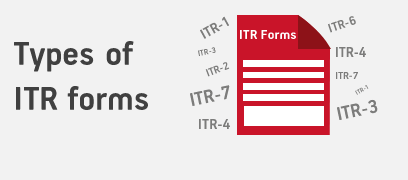Confused about which ITR form to use for filing your income tax returns? This guide breaks down the different ITR forms and helps you understand which one suits your needs
Deciphering ITR Forms
Filing income tax returns (ITR) is an essential annual ritual for taxpayers, but choosing the right ITR form can be confusing. With multiple forms catering to different types of income and taxpayers, it's crucial to understand the distinctions. In this comprehensive guide, we'll unravel the mystery surrounding ITR forms, helping you make informed decisions when filing your taxes.
1. ITR-1 (Sahaj):
ITR-1, also known as Sahaj, is the simplest form designed for salaried individuals, pensioners, and small taxpayers. It covers income from salary, one house property, and other sources, provided total income does not exceed Rs. 50 lakhs. If you earn income from multiple sources or have significant investments, you may need to explore other forms.
2. ITR-2:
ITR-2 is for individuals and Hindu Undivided Families (HUFs) with income from more than one house property, capital gains, or foreign assets. If you have income from business or profession, you're ineligible to use ITR-2.
3. ITR-3:
ITR-3 is suitable for individuals and HUFs with income from business or profession, including partnership firms. If you're a salaried individual with no business income, you don't need to file ITR-3.
4. ITR-4 (Sugam):
ITR-4, also known as Sugam, is for small business owners, professionals, and freelancers opting for presumptive taxation under sections 44AD, 44ADA, or 44AE of the Income Tax Act. It simplifies tax compliance for those with turnover up to Rs. 2 crores.
5. ITR-5:
ITR-5 is for firms, LLPs (Limited Liability Partnerships), AOPs (Association of Persons), BOIs (Body of Individuals), and artificial judicial persons. It covers a wide range of entities and is more complex than individual tax forms.
6. ITR-6:
ITR-6 is for companies other than those claiming exemption under section 11 (income from property held for charitable or religious purposes). It requires detailed information on income, expenses, and other financial aspects.
7. ITR-7:
ITR-7 is for persons including companies required to furnish returns under sections 139(4A), 139(4B), 139(4C), or 139(4D). It's applicable to entities such as charitable trusts, political parties, and research associations.
Selecting the Right ITR Form
Choosing the correct ITR form is crucial for accurate tax reporting and compliance. By understanding the distinctions between different ITR forms and assessing your income sources and eligibility criteria, you can ensure smooth tax filing and avoid potential errors or penalties. For personalized guidance and assistance with ITR filing, consult with tax professionals like Verotus Finlegal Solutions LLP.


